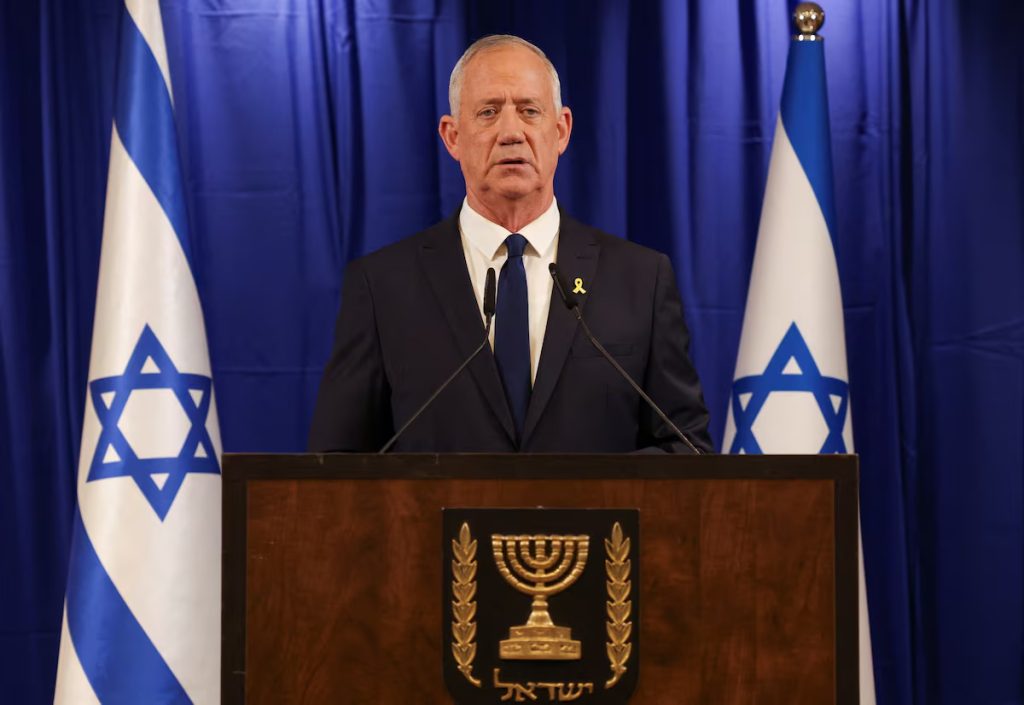
Israeli Minister Benny Gantz resigned from Prime Minister Benjamin Netanyahu’s emergency government on Sunday, pulling his centrist party from the coalition amidst the prolonged Gaza conflict. This exit leaves Netanyahu increasingly dependent on far-right elements within his government.
Political Frictions and Resignation
Gantz had previously issued an ultimatum to Netanyahu to present a clear strategy for Gaza by June 8. After Netanyahu disregarded this, Gantz announced his resignation, criticizing Netanyahu for allowing political considerations to overshadow crucial strategic decisions. “Netanyahu is preventing us from advancing toward true victory,” Gantz said during his televised announcement, noting the difficult choice made amidst ongoing hostilities in Gaza.
Implications for Government and War Efforts
With Gantz’s departure, Netanyahu loses a key centrist ally, reducing the coalition’s moderate appeal. The government, now more reliant on ultra-nationalist factions, faces heightened tensions domestically and internationally. Netanyahu’s coalition still holds a majority in parliament, but the shift towards hardline politics could strain relations with allies like the United States and complicate the ongoing military campaign in Gaza.
Political and Strategic Challenges Ahead
Gantz, seen as a strong political rival to Netanyahu, called for setting an election date in the autumn to avoid further internal conflict. He described Defense Minister Yoav Gallant as a courageous leader and urged him to make the right decisions moving forward, without specifying further. In the wake of Gantz’s resignation, far-right ministers like Itamar Ben-Gvir and Bezalel Smotrich voiced their intentions to fill the gap in the war cabinet, with Smotrich accusing Gantz of aiding Israel’s adversaries.
As the Gaza conflict continues with no resolution in sight, Netanyahu’s administration faces increased pressure to achieve its military objectives and stabilize the political landscape.








